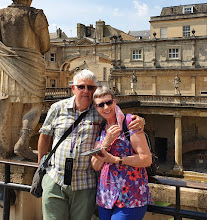Taken from this week's Tablet (29 November 2014). It sums up exactly what I think is wrong with the EU.
When Pope Francis berated the European Union this week for having lost
its vision, he was pushing buttons in all its 28 member states. The EU
has become mired in a bureaucratic and technocratic style of governance,
giving “a general impression of weariness and ageing, of a Europe that
is no longer fertile and vibrant”, he told a special meeting of the
European Parliament. It was in the grip of “uniform systems of economic
power in the service of unseen empires”. No wonder people had lost faith
in it.
Although he received a standing ovation and much praise,
particularly from the more Eurosceptical members of the assembly, this
papal dressing down had not been expected. The last papal address to
this body, by Pope John Paul II more than two decades ago, recalled that
the EU’s founding fathers had drawn on Christian faith for their
inspiration. That was a legacy that had been squandered, Pope Francis
said, and needed to be returned to – not least as an antidote to rival
ideologies such as Islamic jihadism.
Institutions are made of
people – politicians in this case – so his indictment was of the entire
contemporary political class. They had to rediscover “the sacred nature
of the human person”, he told them. “The great ideals that once inspired
Europe seem to have lost their attraction, to be replaced by the
bureaucratic technicalities of its institutions.” The Pope is well aware
that this cohort of European politicians thinks it is an acceptable
solution to the problem of refugees trying to reach southern Europe by
boat, to let them drown as an example to others. He barely concealed his
disgust when he implored them not to allow the Mediterranean to become
“a vast cemetery”.
Most member states have felt the rise of
disillusionment with the EU among their electorates, not least the
United Kingdom where Ukip is threatening to derail the Conservative
Party from which it has recently captured two seats. Most Eurosceptic
sentiment, in Britain and elsewhere, is felt as a pull of the national
interest against the international, of “us” against “them”. Far from
supporting this appeal to national self-interest, however, the Pope is
appealing for the opposite – a Europe that takes continent-wide
solidarity seriously and defends the individual against the anonymous
forces of the market. The shrewder politicians will understand that
people want more from Europe, not less. But they do not want more of the
same.
Judging from the state of the European debate in Britain,
slightly less of the same is the best on offer. It is very noticeable
that no politician of any party has attempted a defence of the European
project on grounds of moral vision rather than of expedience. The notion
of a European common good, benefiting the national interest of all its
members, has vanished. Yet it was the guiding principle of the founders,
and the reason, therefore, that the EU and its earlier manifestations
came into existence. Without roots planted in fertile moral ground, it
will be bound to wither. After the speech of Pope Francis, it cannot
complain that no one warned it.
The Fast that Pleases God
-
A priest hearing confessions on Ash Wednesday was pleasantly surprised when
a sinner came in and said: “Father, for Lent, I’m going to pray a whole
bunch a...
23 hours ago










No comments:
Post a Comment